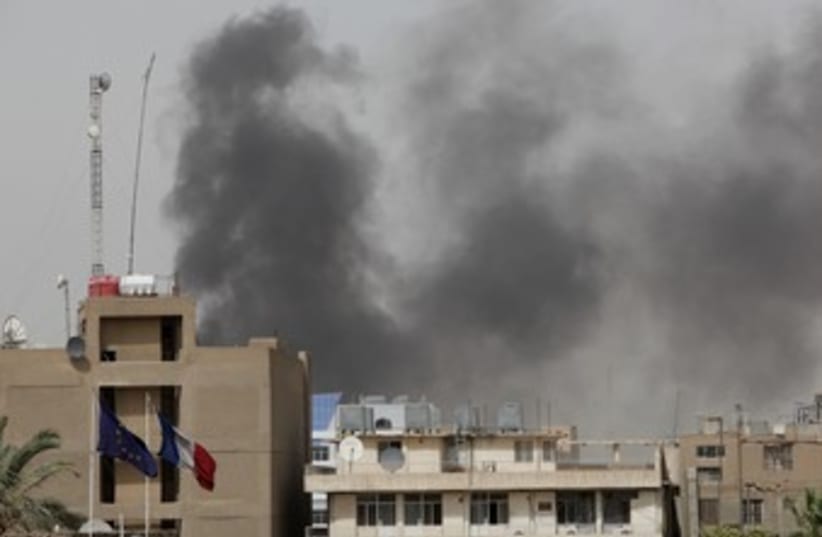New chapter, new tacticsAmerica's withdrawal took with it US intelligence gathering capabilities, handing insurgents more operational space in former strongholds such as Anbar province and areas where local political infighting hobbles Iraqi armed forces.At the start of the Muslim holy month of Ramadan at the end of July, a rare communique from al-Qaida's local chieftain, Abu Bakr al-Baghdadi, announced a renewed jihad to recapture areas lost during the years of conflict with American forces.In a fiery message about his muhahideen combatants, Baghdadi also warned Americans: "You will soon see them in your homes. The war has only just started."Even before his call to arms, June witnessed some of the severest attacks attributed to al-Qaida in Iraq since the US pullout, including a surge in bombings on Shi'ite pilgrims and a suicide attack on a Shi'ite religious office in Baghdad.July was Iraq's bloodiest month in the past two years with 325 people killed in attacks, most of them civilians.Though al-Qaida's support had dwindled in Iraq because of civilian casualties, its bombings now focus on Shi'ite targets, government offices and local security forces as it seeks to inflame sectarian tensions and undermine Maliki.The group, once a magnet for foreign fighters who often antagonized locals, has now reverted to a core of Iraqis hardened by the anti-American insurgency and in US jails."These organizations have shown a resilience by adapting and forming small diffuse cells," said John Drake, at AKE Group consultancy. Al-Qaida in Iraq is now "seen as a much more domestic organization, so it could actually have more support among some members of the Iraqi public," he added.
Syria crisis feeds Iraq violence, al-Qaida revival
Insurgents creeping back to some old strongholds; Syria crisis injects new life into al-Qaida affiliate.

New chapter, new tacticsAmerica's withdrawal took with it US intelligence gathering capabilities, handing insurgents more operational space in former strongholds such as Anbar province and areas where local political infighting hobbles Iraqi armed forces.At the start of the Muslim holy month of Ramadan at the end of July, a rare communique from al-Qaida's local chieftain, Abu Bakr al-Baghdadi, announced a renewed jihad to recapture areas lost during the years of conflict with American forces.In a fiery message about his muhahideen combatants, Baghdadi also warned Americans: "You will soon see them in your homes. The war has only just started."Even before his call to arms, June witnessed some of the severest attacks attributed to al-Qaida in Iraq since the US pullout, including a surge in bombings on Shi'ite pilgrims and a suicide attack on a Shi'ite religious office in Baghdad.July was Iraq's bloodiest month in the past two years with 325 people killed in attacks, most of them civilians.Though al-Qaida's support had dwindled in Iraq because of civilian casualties, its bombings now focus on Shi'ite targets, government offices and local security forces as it seeks to inflame sectarian tensions and undermine Maliki.The group, once a magnet for foreign fighters who often antagonized locals, has now reverted to a core of Iraqis hardened by the anti-American insurgency and in US jails."These organizations have shown a resilience by adapting and forming small diffuse cells," said John Drake, at AKE Group consultancy. Al-Qaida in Iraq is now "seen as a much more domestic organization, so it could actually have more support among some members of the Iraqi public," he added.